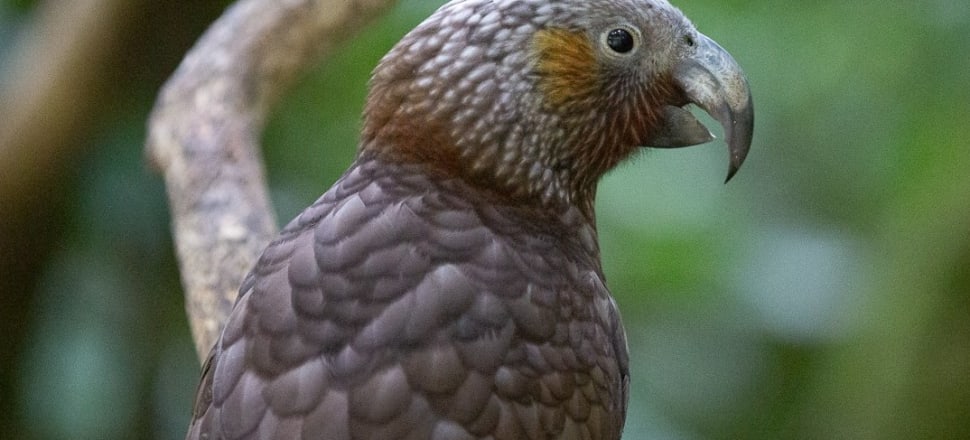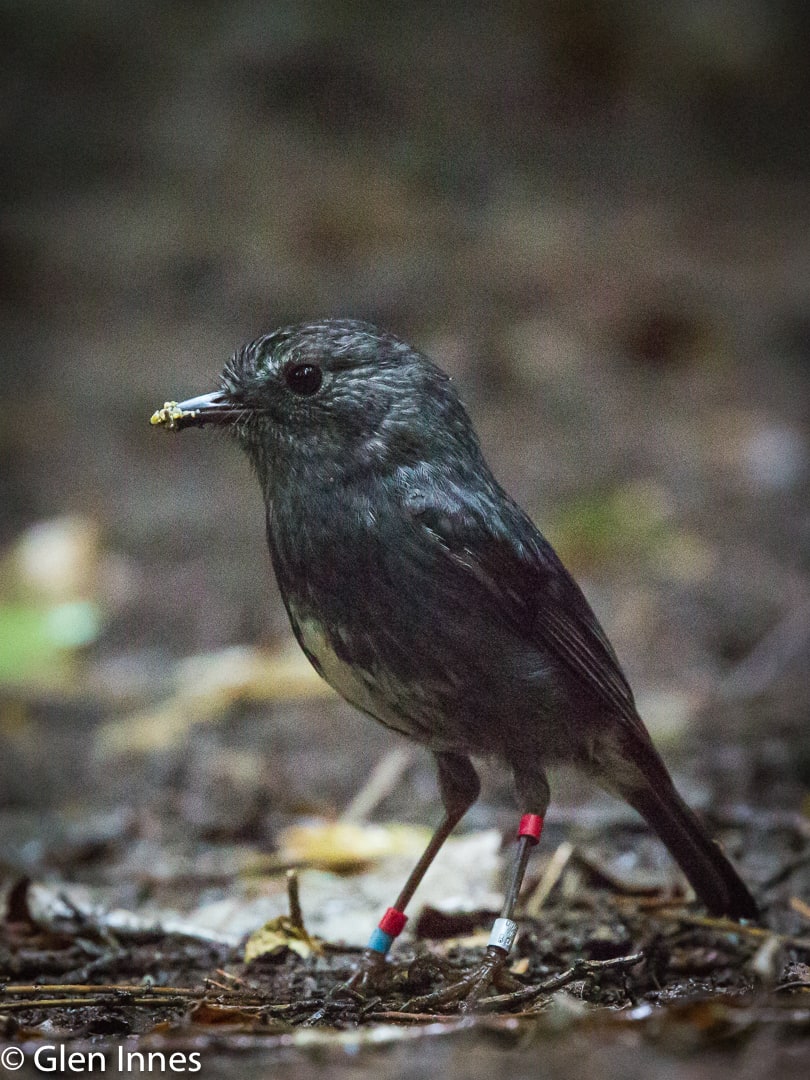
An author on the death of a baby and "a calm respectful grace"
The normal world was out there. The clocks and the jobs and the traffic and the mortgages and the death. Especially the death. Death in suburbia means funerals with piped fake Celtic music despite the fact I had said no music, and graveyards with permanent marble reminders, and sympathy cards arriving along with the mortgage demands.
Death is a permanent feature in suburbia. In the forest it’s there and then it’s gone. The body falls to the ground, it gets covered in leaves, the gut bacteria grows, the abdomen extends, the body rots, the skin slides off, the flies come, the beetles come, the scavenging birds and animals come, then the wind and rain erosion takes the last of the flesh then the bones away and there is nothing left but fertilised ground ready for the next life.
The bush is a dreamlike place with filtered light turned green by the leaves. The bush has filtered sound muted by the humid air and dense foliage. The sounds in the northern forests, in Europe, in Russia, in North America, travel further and clearer. The sounds made by New Zealand birds have to be higher, louder just to be heard.
The bush was not the basement with its boxes of unused clothes, of baby things I couldn’t bear to part with. The bush was not the bedroom with its blankets that muffle the sounds of visiting family.
She’s sleeping, they’d say. Do you think she’s sleeping too much?
In the bush the birds are no longer the backdrop but the thing. The bush is not the trees. The bush is not the birds. The bush is not fungi nor ferns nor invertebrates. The bush is all these things. Take one group out and it’s no longer the bush.
If you ever need someone to talk to …
Except that involves call and response, turn-taking, conversation. I didn’t need someone to talk to. I needed someone to talk to me with no compulsion on my part to reply, to take my turn, to show any sign of having listened to a word they’d said.
The birds were talking to me and didn’t give a flying fuck if I was listening or not. In the bush birds are blatant in their disregard for my sensibilities.
Fuck! Watch out! Some clumsy human is walking this way!
There was no subtlety in the way they told each other things. They didn’t try to spare my feelings. They’re the worst of the bare faced bullies …
Or … if I’m not seeking to take offence … they just tell it how it is.
Just as a snowplough brutally shoves aside any snow, I did set off what Bernie Krause in The Great Animal Orchestra had called a bird plough. My oblivious stomp through the undergrowth to a sit-spot resulted in a Mexican wave of rising and falling birds accompanied by yelling and complaining calls. And then it all settled down again.
People kept asking me whose fault it was. Did a midwife make a mistake? Did the obstetrician? Did the hospital?
Every day I walked to the same sit spot. Barely into the bush but far enough that I was hidden from my house and the people who dropped and ran. Jon Young, who wrote What the Robin Knows, had said to find a sit spot, so I forced myself out the door and into the bush each day. There I could watch people come, set down the casserole dishes quietly, arrange the card carefully on top, steady themselves, knock and run away. Some of them fairly sprinted. It was impressive. I didn’t mind anymore. They ran from their sides of the same conversations I was hiding from. I closed my eyes.
Young says to not rush, but I couldn’t help myself in the wild scrabble up the little hill each day. Don’t rush and yet don’t tiptoe, don’t creep. Don’t move as a cat would move, sliding along, stealthily. That is the way of a predator. Move with calm movements.
I can’t promise that, I whispered to the book. It was all I could do to drag myself out of the house. It was a wonder I was there at all in that green world.
I did the same each day. Not so much running towards the bush as away from the bungalow. I kept reading about people who loved birds. Birdwatchers who will spend hours watching them, taking notes, sketching images, travelling vast distances to see rare species. There were lovers of pet birds, birdbaths, birdfeeders, bird calls on the radio to announce the start of the news.

I knew people loved birds but I couldn’t quite understand it yet. Couldn’t feel it. I thought of birds in more of a bad omen way. In a bird flu, birdbrained, Hitchcock way. In a bitter way.
I realised, anger scares the birds away. I scare the birds away. I am anger.
People kept asking me whose fault it was. Did a midwife make a mistake? Did the obstetrician? Did the hospital?
No, no, no.
And then they looked at me in a way I didn’t like and wanted to know what I had eaten, had I exercised too much or too little, had I drunk, smoked, or fucked too much?
No. Sometimes babies just die.
I said this a couple of times, and they looked at me like they didn’t believe me. Like I was lying, covering something up. Everyone wanted someone to blame while I just wanted to grieve. So, I found a spot higher up on the hill, harder to get to, in need of much more clambering, struggling, of my being scratched and made dirty. I found somewhere to sit where I didn’t have to watch people come and go to my house, or worse, increasingly, people not come and go.
I wanted softly spoken words, delicately worded phrases. So I stepped gently through the undergrowth
One day I couldn’t go into the bush. I had to see my obstetrician and afterwards I could wait in the rain or in a café for Ivan to pick me up. I would rather have sat in the rain, but Ivan would have lectured me for a week about getting cold, getting sick. The café was full of straight lines and 90-degree angles and bright colours and weird noises that I realised were people talking. I had not been in a café for a long time.
A barista moved with non-threatening movement. I didn’t know why he was so gentle setting down my coffee, as though the cup, the saucer, the table and me on my chair would all shatter into splinters at the merest breath of wind. It was certainly not the movement of a predator. I puzzled over the barista until I remembered that when I had entered the café I’d met a seldom seen colleague from another department in the queue. She looked at my belly then congratulated me,
You’ve had your baby! Having a quick break are you? It’s so tiring, isn’t it? What did you have?
The barista had heard my reply.
There’s no baby. He died.
I was so tired. I was too tired to be angry anymore.
When I was angry the birds were angry back. It was alarm calls all the way down the valley and I now longed for bird song. I decided not to be angry with the world anymore. Not to be angry with all the people who said, "Oh how terrible! How horrible! Oh, that sucks!"
I wanted softly spoken words, delicately worded phrases. So, I stepped gently through the undergrowth. The barista had moved not with stealth but with love and concern. He hadn’t asked me whose fault it was or why or how. Jon Young said you should walk through the forest with respect, feeling neither threatening nor needy.
The barista would make a good bird watcher, I thought.
So, I tried to walk in the bush in a way that didn’t scare the birds, by mimicking a barista softly placing a teacup for a bereft mother who was somehow also not a mother. I entered the forest, moving like a stranger not wanting to spill a drop, with a calm respectful grace.
Taken with kind permission of the author from Into the Woods by Helen Innes (Piwaiwaka Press, $12), available directly from the publisher.







